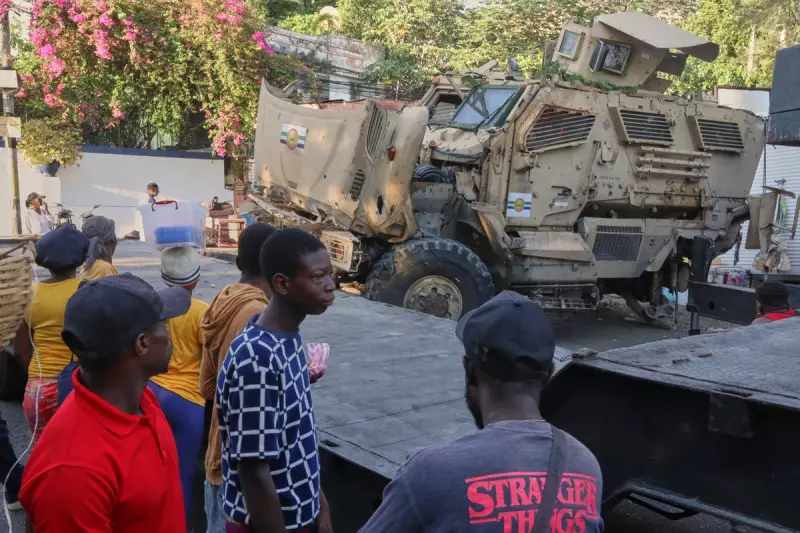
The international mission to stabilise Haiti, led by Kenyan police forces, has been thrown into uncertainty following the dramatic resignation of the Caribbean nation's prime minister.
The planned deployment of 1,000 Kenyan officers, initially expected within days, has been officially postponed. This development comes as Haiti descends into further chaos, with powerful gangs tightening their grip on the capital, Port-au-Prince.
Political Vacuum Halts Security Plans
The resignation of Prime Minister Ariel Henry, announced from Puerto Rico, has created a political vacuum that has forced Kenya to pause its controversial security mission. The Kenyan government had positioned itself at the forefront of a multinational effort to address Haiti's severe gang violence crisis.
'We cannot proceed with the deployment until there is a clear political authority in Haiti to work with,' a Kenyan government source stated, highlighting the operational challenges posed by the power vacuum.
Gangs Exploit Power Struggle
The delay comes at a critical moment for Haiti. Gang leaders, who had previously orchestrated a coordinated offensive to oust the prime minister, now effectively control large portions of Port-au-Prince. Essential services are paralysed, and the main international airport remains closed.
The violence has created a severe humanitarian crisis, with reports of food and medical shortages escalating throughout the capital.
International Response and Next Steps
The United States, a key backer of the mission, has emphasised the urgent need for a transitional governance arrangement. The international community is now pushing for the swift establishment of a transitional presidential council to fill the leadership void.
Despite the setback, Kenya maintains its commitment to the mission, contingent on the restoration of a functional and legitimate Haitian government. The future of this vital security intervention now hinges on the fragile and volatile political negotiations within Haiti.





